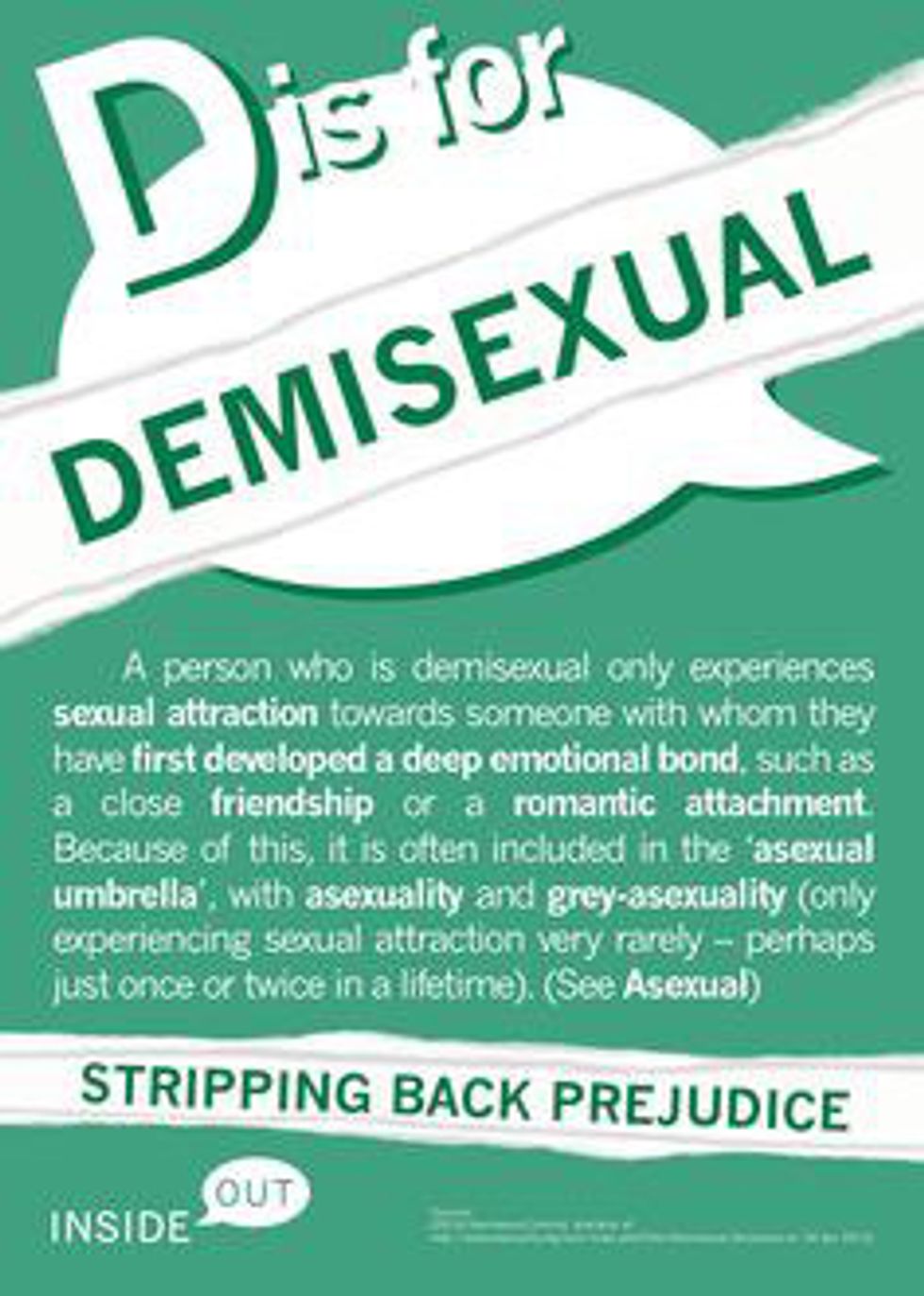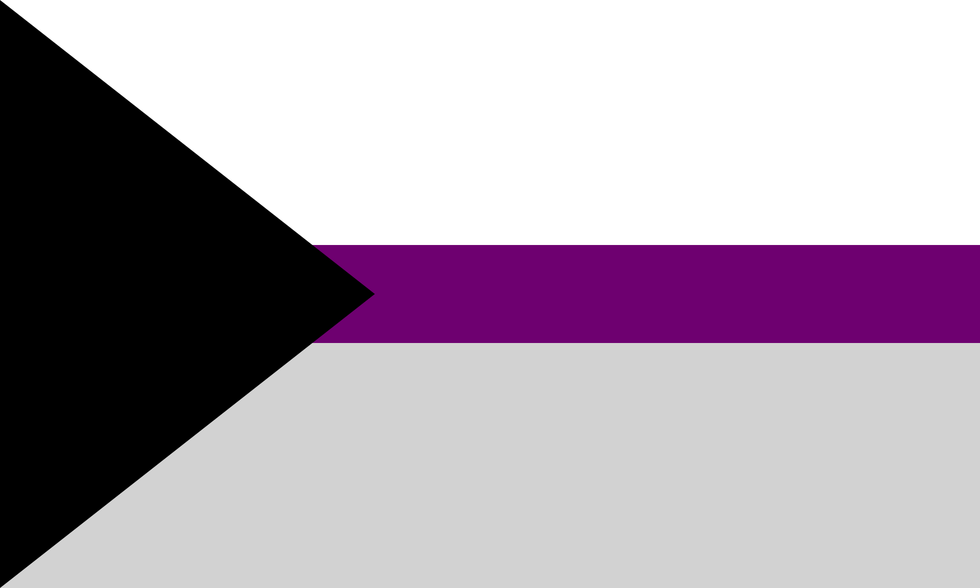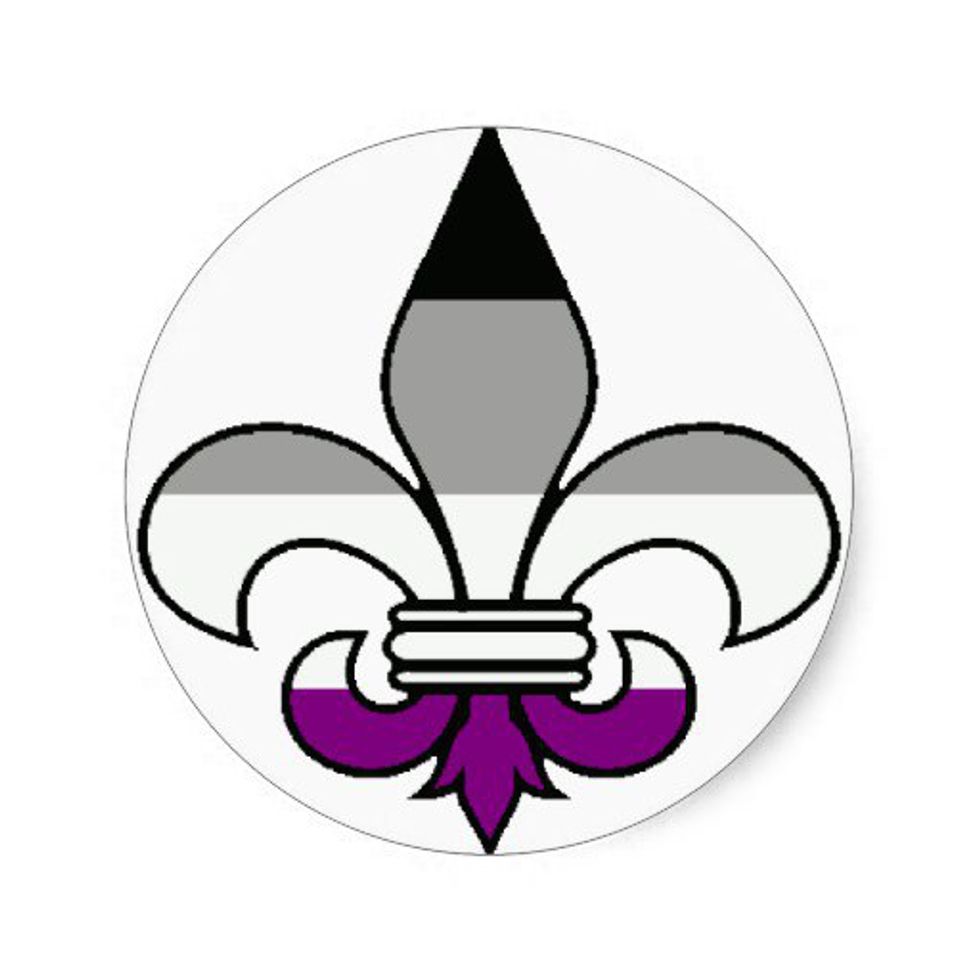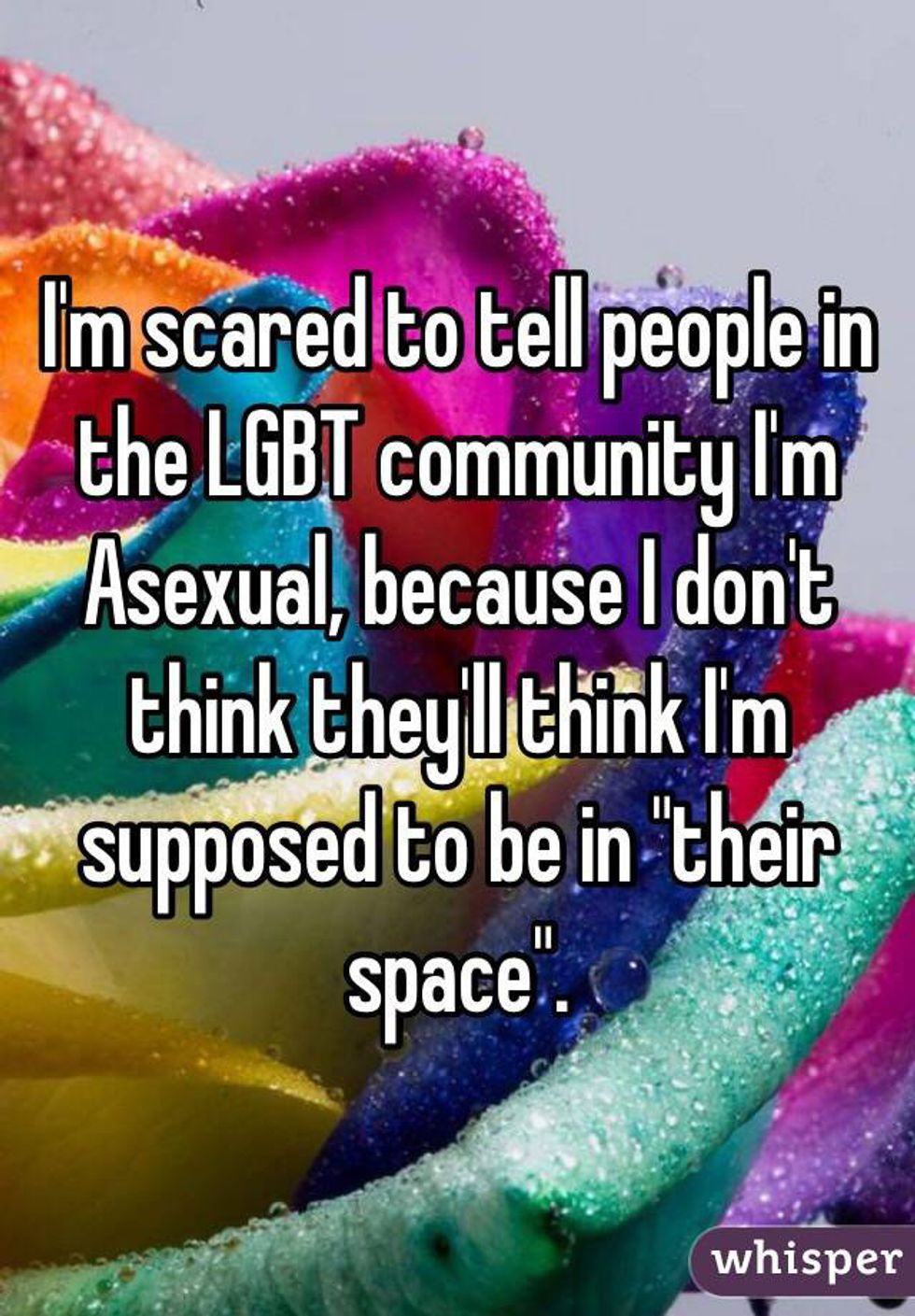I won’t say that I always knew I was different than a lot of my peers when it comes to sexual attraction. In fact, I didn’t consider myself as an “other” before, as anything else than a standard sexual individual, even though I didn’t develop crushes like most of my friends and I never looked at pictures of shirtless, ripped guys and felt lustful. I would always find them attractive in an objective way, but these were people I didn’t know. They were strangers. In pictures, they were as sexually attractive to me as plants. The idea of sleeping with them was never a fantasy. I would rather get to know a person first, connect with them and feel comfortable with who they are before considering that. But recently it came to my attention that perhaps that disconnect to my friends’ expression and natures of sexuality meant that I was not simply a heterosexual like I assumed. Sometimes I felt like I wasn't quite on the same page as them.
Demisexual. At first I considered asexual, but that didn’t feel quite right. I searched around through Google, trying to match my traits to some form of sexuality. What came up was information on the spectrum between sexual and asexual, which was as complex with as many categories as numbers between 0 and 1. From there, I found demisexual.
For this reason, many people in this middle area identify as gray A, or gray Ace, to indicate the general area between sexual and asexual. I find it much easier to use just demisexual, since that is what fits me the most. I read up on it, took several online quizzes and that consistently confirmed a label that felt right. It felt like mine. Oddly enough, the flag for demisexuality has purple, one of my two favorite colors, and one symbol of it is a fleur de lis, a pattern that I have always found myself drawn to. The term demisexual, additionally, does not dictate an attraction to one specific gender. A person can be demiheterosexual, demihomosexual, demipansexual, demibisexual.
Among my research into demisexuality, I did find some nasty things. It was to be expected, considering trolls on the internet and general pushback against the LGBTQ+ community. Most of it was typical stuff, but I found one sentiment threaded throughout online discussion boards about asexuality, demisexuality, gray A and others. Some individuals would comment that the people in the threads were making up terms and sexualities in order to be “special snowflakes.” Basically, these commenters said the discussion was not valid because the people used little-known terms and that itself was reason enough to believe they were making it all up for attention.
This made me angry. Here were people finding solace in the realization that they were not alone, that others experienced sexual attraction in a similar way to them. That this type of sexuality had a name, because they didn’t feel they completely fit the well-known sexual labels such as “gay,” “lesbian,” “bisexual,” or even “pansexual.” Those labels felt incomplete. Asexuality alone gets much dubiousness and skepticism from the public, criticized for being made up or absurd, enough to ostracize a person as a social pariah. All for rarely or not at all experiencing sexual attraction. So this is compounded when one tries to bring forward the spectrum between sexual and asexual and the myriad of identities within. My sexuality and others similar to it belong to the vague, sometimes forgotten, “+” part of “LGBTQ+.”
Yet there was this minimization from these commenters, this complete and utter disrespect of accusing those individuals of simply seeking attention. Of trying to be “special snowflakes” just for the sake of feeling different. To those that agree with that notion, I would like to say this: you couldn’t be more wrong.
These little-known, “other” sexual identities do not typically make people stop and say “Wow, that’s so unique. How amazing.” It often leads to confusion, anger and sometimes irrational hatred. A person is lucky if those around them accept the sexuality as a part of who he or she is, try to understand without judgment, and not look at him or her like a freak in need of counseling. There is a risk in admitting it to anyone. It is in fact a good thing that all these labels are emerging: they are evidence of information on human sexuality being much more widely circulated and discussed. These sexualities have always existed, but people are finally able to give them names and use those names to more freely express their sexualities. This is a cause for celebration, not resentment and doubt. And taking away that celebration is unnecessarily cruel.

My demisexual traits are not a choice. I did not choose to have a lack of primary attraction, the attraction people feel toward one another based on physical appearance, to get no pleasure out of kissing someone I have not emotionally connected with. I am not noble or abstaining, pure or pious, and I am also not in need of help or psychologically traumatized. This is just the way I am, and that’s okay. Human sexuality is complex and diverse, as much as race or gender, personality or abilities. I am not trying to be a “special snowflake,” I am trying to understand myself and remind myself that I am not alone in this. That’s not a crime, and let’s not treat it like one. Besides, who ever said there was anything wrong with snowflakes?























